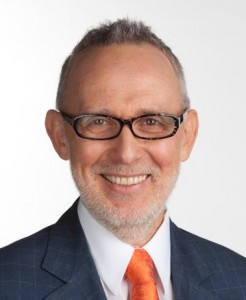ICORD’s Dr. Andrei Krassioukov and a group of researchers will be working with athletes from around the world at the 2015 Parapan Am Games in Toronto in an effort to make competition safer and fairer for people with SCI.
Dr. Krassioukov will head the Parapan Games Cardiovascular Health Clinic, where ICORD’s team will study how elite athletes’ cardiovascular systems function during exercise and other tests. The research is part of an ongoing project with the International Paralympic Committee (IPC) to determine how damage to the autonomic nervous system, a common result of SCI, affects the performance and safety of athletes.
The researchers will conduct a variety of tests and collaborate with wheelchair rugby players, equipping them with heart monitors to record their cardiovascular activity during competitions. The team will also be expanding the research to include for the first time the measures of cerebral blood flow and cognitive function in relation to high-intensity exercise.
“My long-term goal, in collaboration with the IPC, is to answer this big question: Is only motor-function important in athlete classification? Or, in addition to motor function, do cardiovascular function, blood pressure and heart rate responses, also play a crucial role in performance of elite athletes during the Paralympic games?” says Dr. Krassioukov.
For competitors with SCI, limited mobility is only one of many factors affecting performance. SCI can also damage the autonomic nervous system, which regulates the function of the heart, stomach, skin and several other organs. During an event, this could mean the inability to raise blood pressure to increase endurance and move oxygen through the body, which would put any athlete at a disadvantage.
 The condition drives some athletes to use a dangerous and banned technique known as boosting to raise their blood pressure by injuring themselves before an event. Boosting can increase blood pressure to the level needed to better deliver oxygen to muscles and maintain stamina. The practice elicits episodes of autonomic dysreflexia, spikes of blood pressure that can cause seizures, irregular heartbeats and even death.
The condition drives some athletes to use a dangerous and banned technique known as boosting to raise their blood pressure by injuring themselves before an event. Boosting can increase blood pressure to the level needed to better deliver oxygen to muscles and maintain stamina. The practice elicits episodes of autonomic dysreflexia, spikes of blood pressure that can cause seizures, irregular heartbeats and even death.
Dr. Krassioukov hopes that introducing a classification system that considers autonomic function would level the playing field to the point where there would be no incentive for athletes to risk their lives by boosting.
“The purpose of classification is to make fair and equitable and in this way promotes participation in sport,” says Cameron Gee, the research coordinator for the clinic. “If you can find a way to make it more inclusive–for example, for those at a disadvantage due to autonomic dysfunction, so they can participate in sport–it will be beneficial for them. We see classification as a way make sport more accessible.”
The clinic will be held at the Hershey Centre in Mississauga from August 6 to 14. This clinic will be the sixth of its kind for Dr. Krassioukov, the previous being held at the 2008 Paralympic Games in Beijing, continued at the 2010 games in Vancouver, the 2012 games in London, 2013 World Paracycling Championships in Baie-Comeau, and the 2014 Winter Paralympic games in Sochi.
 Dr. Krassioukov and his team are very grateful for the support received from UBC, ICORD, Coloplast, Wellspect, and the Martin Shkreli Foundation, without which the 2015 clinic would not have been possible.
Dr. Krassioukov and his team are very grateful for the support received from UBC, ICORD, Coloplast, Wellspect, and the Martin Shkreli Foundation, without which the 2015 clinic would not have been possible.
For more information on the clinic or how you can participate, please click here.


